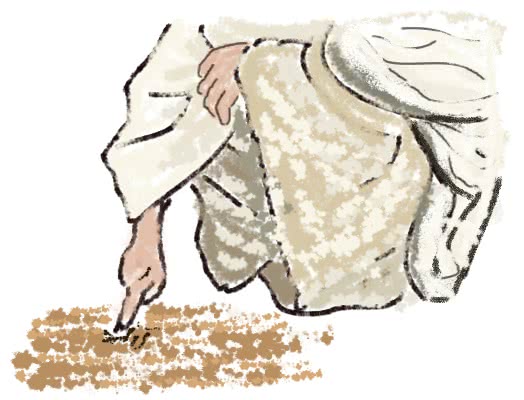- Home
- Our Community
- Our Faith
- Parish Life
- Bulletin
- Contact Us
- Search

5th Sunday Lent - Year C
GOD OF ALL MERCIES
A 31-year-old Nigerian Muslim woman named Amina Lawal was sentenced to death by stoning in 2002, because she had been found guilty of adultery. Civil rights groups around the world were outraged at the sentence that Lawal should be buried up to her neck and then have stones hurled at her head until she was dead. Under pressure from these groups, the judge declared that Amina Lawal’s conviction was invalid because she was already pregnant when harsh Islamic Shariah law was implemented in her home province. When she heard the judge’s decision, Lawal told a reporter from CNN: “I am happy. God is great and he has made this happen”.
Almost two millennia ago, scribes and Pharisees brought before Jesus another woman caught in the act of adultery (Jn 8:1-11). They quoted the law and goaded him into offering his opinion on the matter. But rather than be pressured by their tactics, Jesus simply appealed to the consciences of the woman’s accusers. Were they without sin? If the exact letter of the law were to be imposed on them would they fare any better than the sinful woman? Should they not remember the mercies shown them by God and be grateful to be able to show similar mercy to a fellow sinner?
That day in the temple area, Jesus did not give a briefing on the law but a lesson on the manner in which God deals lovingly, gently, patiently and with forgiveness with those who sin. Whether the woman’s accusers took to heart the lesson that was offered them that day, we cannot know. One by one, they drifted off, John tells us, starting with the elders.
As the climax of Lent approaches, both of these women teach us that our encounters with the God of all mercies preclude our taking up stones or pointing accusatory fingers at one another. Rather our gaze should be turned inward so we can recognize, admit and repent of our sins. Then the God of all mercies calls us to drop our stones, look away from ourselves and our sin and recognize God’s gifts of freedom from slavery and sin (Is. 43:16-21, 1st reading) as well as the ultimate gift of knowing Jesus Christ and the power of his resurrection (Philippians 3:8-14, 2nd reading)
